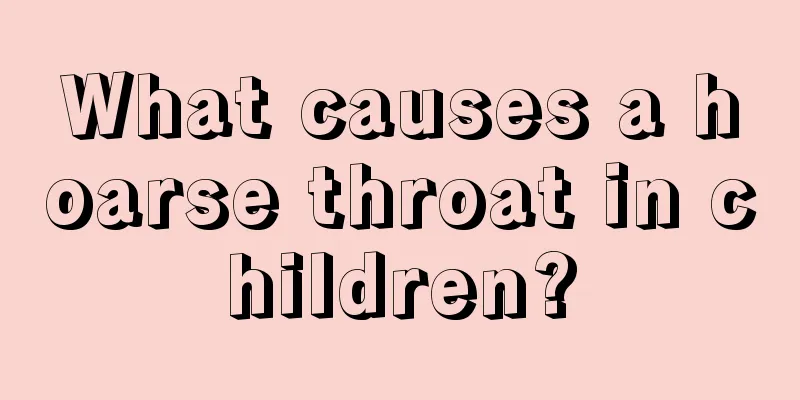Causes and treatments of enlarged tonsils in children

|
Enlarged tonsils in children may be caused by bacterial infection or tonsillitis, so if we want to treat enlarged tonsils in life, we need to know its cause. Tonsils are an organ that helps us prevent bacteria. They begin to shrink when a child is four years old. If a child's tonsils do not shrink, the child will snore when he or she sleeps. Tonsils generally begin to atrophy after the age of four, and their function gradually weakens. The age range for tonsil surgery is between 4 and 40 years old. The size of tonsils is divided into the following degrees: when the tonsils on both sides can be connected together in the midline, it is called grade III hypertrophy; between the front and back arches is grade II; and not exceeding the front arch is grade I. Simple enlarged tonsils do not necessarily require surgical removal, but if enlarged tonsils cause snoring during sleep or even sleep apnea syndrome (snoring accompanied by breath holding), surgical treatment is required. This disease and surgery can be cured in general hospitals above level 2. Snoring is a major symptom of enlarged tonsils and tonsils. If not treated, it will cause children to experience obstructive sleep apnea during sleep. This temporary cessation of breathing can deprive your child of oxygen while he or she sleeps. Then, the child's physical reaction is that he wakes up repeatedly during sleep, and starts breathing after waking up, sometimes gasping, and sometimes blowing his nose hard before breathing. Needless to say, being exposed to such low oxygen levels and constantly waking up due to breathing problems is bound to make your child very tired and grumpy. In fact, some children are misdiagnosed with ADHD because many of the symptoms are similar, such as abnormal irritability, aggression, temper tantrums, and distractibility. It is very common for children to have enlarged tonsils. Children with weak immunity use enlarged tonsils to improve their ability to defend against viral invasion. However, as they age, other immune systems will also increase, so the role of the tonsils will become smaller, and the tonsils will become smaller. Tonsils are also part of the lymphoid tissue of the human immune system. Immunological research in recent years has confirmed that tonsils grow on both sides of the oropharynx, can produce phagocytes, and have the immune function of defending and resisting the invasion of external pathogens into the body. This function is more obvious in children. Therefore, moderate hypertrophy of the tonsils is not always pathological, but a normal compensatory function and physiological phenomenon of children to resist disease. Enlarged tonsils in children is a common condition in our lives. I hope mothers can know its treatment methods and causes so as to provide a better growth environment for our babies. There are many causes of enlarged tonsils in children. I believe that after reading this article, you will know that getting a fever can also cause enlarged tonsils. |
<<: Causes of white tongue coating in children
>>: What to do if your child has a stomachache
Recommend
What to do if your child's head circumference is too large
We all know that a baby's large head circumfe...
How to judge whether the baby is calcium deficient
Babies have very strong growth potential, but onl...
Symptoms of rickets in children
Many parents are concerned about the problem of r...
Is a child's night cough due to heat or cold?
Children's coughing is also very distressing ...
What to eat for malnourished children
Children are most susceptible to malnutrition, an...
Can babies with constipation eat avocado?
For infants and young children, constipation is a...
How should ascariasis in children be checked?
I think many people are like me. When we were you...
What should I do if my baby has a continuous fever?
The baby's health concerns the whole family. ...
Heart pain during teenage development
The adolescent development period is a period of ...
The child's shoulders twitched
Many parents find some abnormal conditions in the...
What is the best way to treat baby's milk rashes?
Some new mothers, due to lack of nursing experien...
Symptoms of intracranial hemorrhage in infants
We have seen that some children have been diagnos...
What is the reason why children breathe loudly when sleeping?
Whether a child is healthy is directly related to...
Symptoms of congenital heart disease in newborns
Congenital heart disease is a malformed heart dis...
Should children's back teeth be replaced?
Generally speaking, babies between the ages of 2 ...









